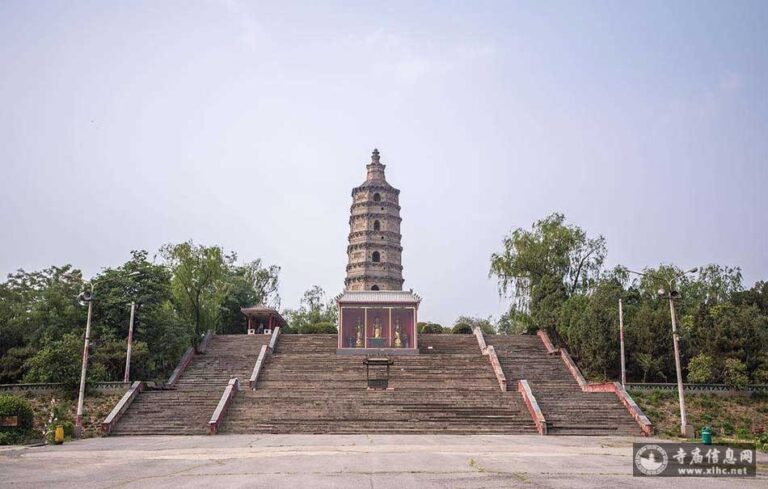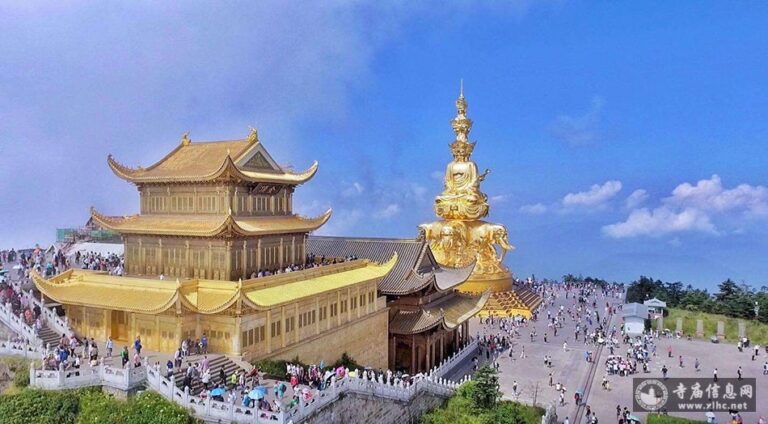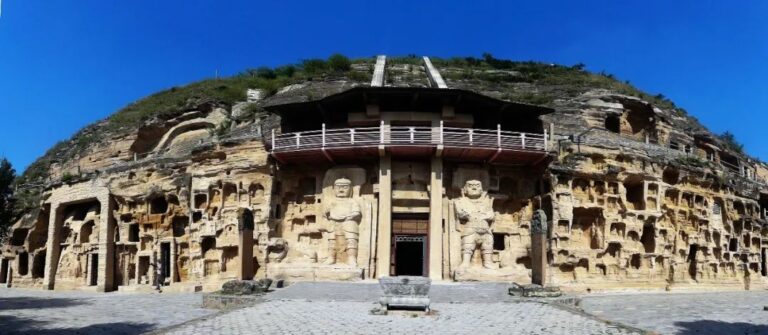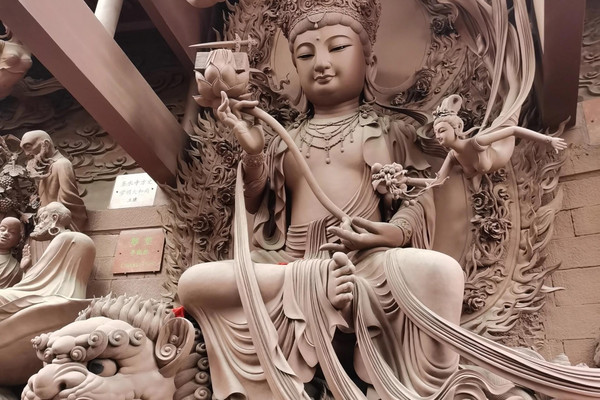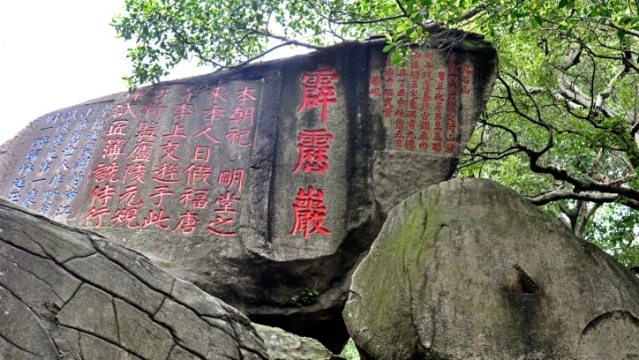Discover the Enchanting Fuzhou Liukengcun Gu Jianzhuqun: A Journey Through Ancient Architecture
An Essential Guide to Visiting Fuzhou Liukengcun Gu Jianzhuqun
In This Guide
- An Essential Guide to Visiting Fuzhou Liukengcun Gu Jianzhuqun
- The Rich History of Fuzhou Liukengcun Gu Jianzhuqun
- Main Highlights: What to See at Fuzhou Liukengcun Gu Jianzhuqun
- Planning Your Visit: A Practical Guide
- Tickets, Hours, and Booking
- How to Get There
- Local Cuisine and Accommodation
- Frequently Asked Questions
- Final Thoughts on Your Trip
Nestled within the verdant hills of Jiangxi Province, Fuzhou Liukengcun Gu Jianzhuqun, or Liukeng Village Ancient Architecture Complex, is a living testament to China’s rich cultural heritage and architectural ingenuity. This enchanting village, founded during the Five Dynasties era between 937 and 943 AD, sprawls over 3.61 square kilometers and is home to the Dong family, a clan that has significantly contributed to the region’s historical and educational landscape.
Once a thriving center of scholarly achievement, Liukeng Village boasts an impressive lineage of over 34 successful candidates in the imperial examination system, known as the keju. Among its illustrious residents are a pair of top scholars and numerous officials, including cabinet ministers and local governors. Such achievements have earned the village a revered status, making it one of only four villages in Jiangxi to produce a substantial number of scholars.
The architecture of Liukeng is a remarkable blend of Gannan style, characterized by its intricate wooden structures, ornate tile-roofed houses, and elaborate ancestral halls, all harmoniously set against a backdrop of lush mountains and flowing rivers. The village’s unique layout, with its seven main streets intersected by numerous alleys, reflects a sophisticated urban planning ethos, designed not only for defense but also to optimize natural ventilation and water drainage.
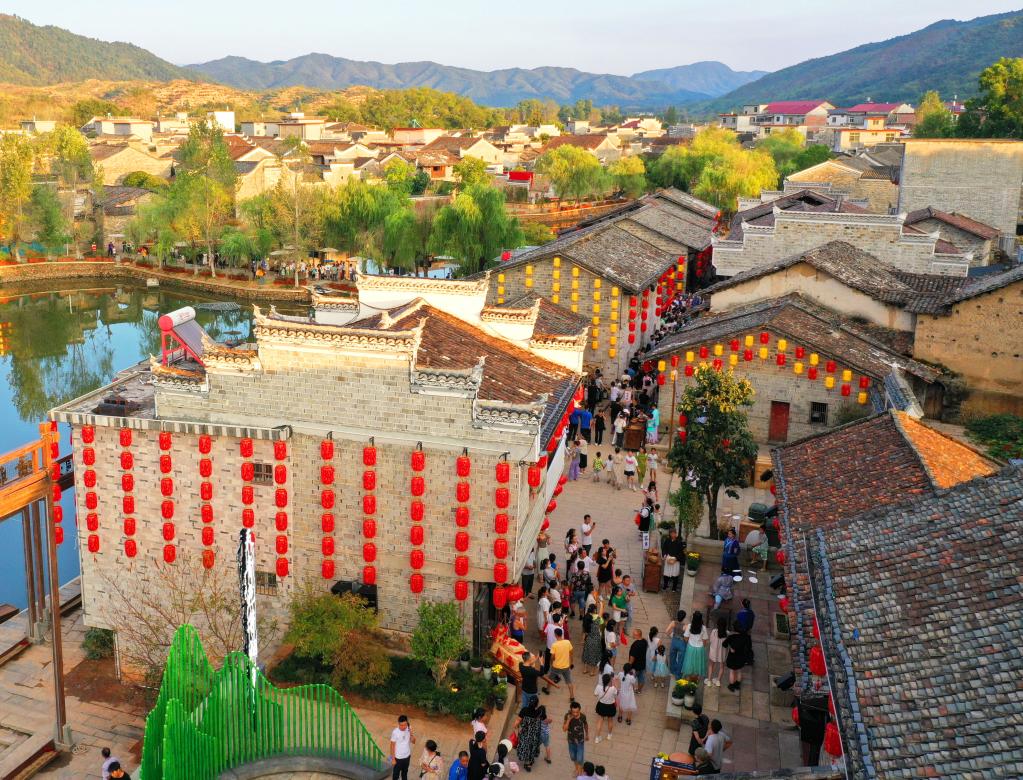
Fuzhou Liukengcun Gu Jianzhuqun.
Visitors to Liukeng Village are invited to immerse themselves in its rich history and vibrant culture. From the moment you step into its timeworn streets, you can sense the echoes of the past, where the spirits of scholars and merchants still linger. Here, traditional practices thrive alongside modern life, as locals celebrate their heritage through festivals, artisanal crafts, and culinary delights.
As you wander through its historic streets, taking in the splendid architecture and engaging with the warm-hearted residents, you will find that Liukeng Village is not merely a place to visit but an experience that connects you to the heart of Jiangxi’s cultural tapestry. Whether you’re an architecture enthusiast, a history buff, or simply in search of a serene escape, this ancient village promises a captivating journey through time.
The Rich History of Fuzhou Liukengcun Gu Jianzhuqun
Nestled along the banks of the Wu River in Jiangxi Province, Fuzhou Liukengcun Gu Jianzhuqun (流坑村古建筑群), or the Liukeng Ancient Village, is a historical gem that showcases a rich cultural legacy spanning over a thousand years. Established during the Five Dynasties and Ten Kingdoms period, specifically between 937 and 943 AD, this village is a testament to the enduring legacy of the Dong family, whose ancestral roots trace back to the esteemed Confucian scholar Dong Zhongshu of the Western Han dynasty.
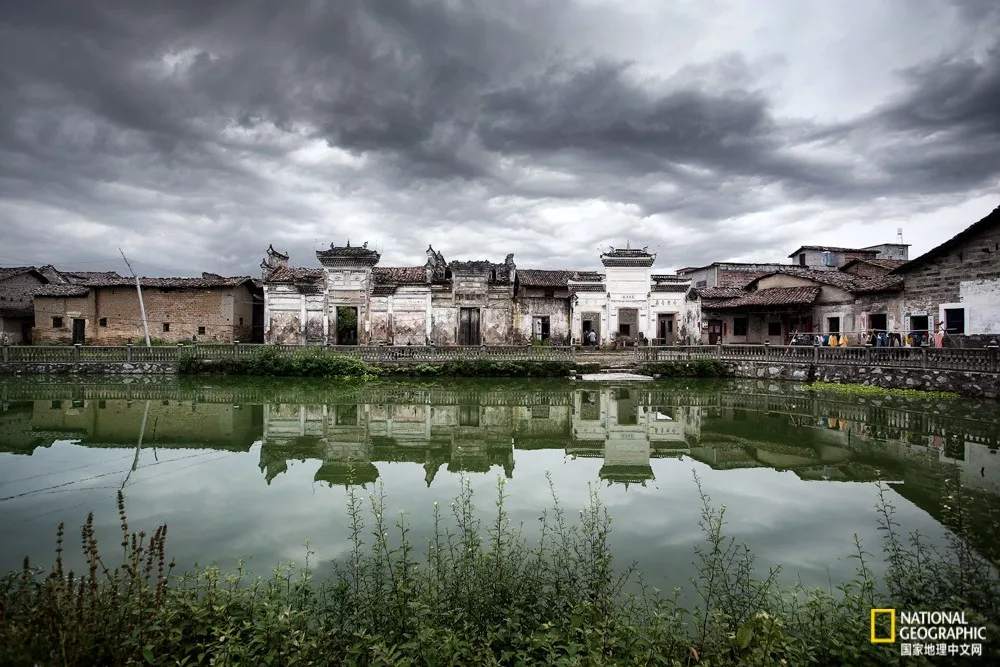
Fuzhou Liukengcun Gu Jianzhuqun.
Throughout its storied past, Liukeng has been a beacon of education and governance. The village produced a remarkable number of scholars — including two top imperial scholars (zhuangyuan) and over 100 jinshi (the highest degree in the imperial examination system). The Dong family cultivated a culture of learning that flourished during the Song dynasty, earning Liukeng the nickname “the first village of the ages” due to its impressive lineage of civil servants and its pivotal role in the imperial examination system.
The village’s architectural landscape reflects its historical significance. With over 260 well-preserved structures, including residences, ancestral halls, and schools from the Ming and Qing dynasties, Liukeng is celebrated for its unique Gan architecture. The layout of the village is meticulously organized, featuring a grid-like pattern of streets, which speaks to its thoughtful urban planning. Notably, the construction of “Dragon Lake” in the mid-Ming dynasty by Dong Sui and his clan transformed the village into a picturesque enclave surrounded by water, enhancing both its aesthetic appeal and agricultural efficiency.
Liukeng’s historical prominence has not gone unnoticed, as it has been recognized multiple times for its cultural heritage. In 2001, it was designated as a National Key Cultural Heritage Site, and later, in 2013, it was included among the first batch of traditional villages in China. Such accolades underscore the village’s importance not only in Jiangxi but also on a national scale.
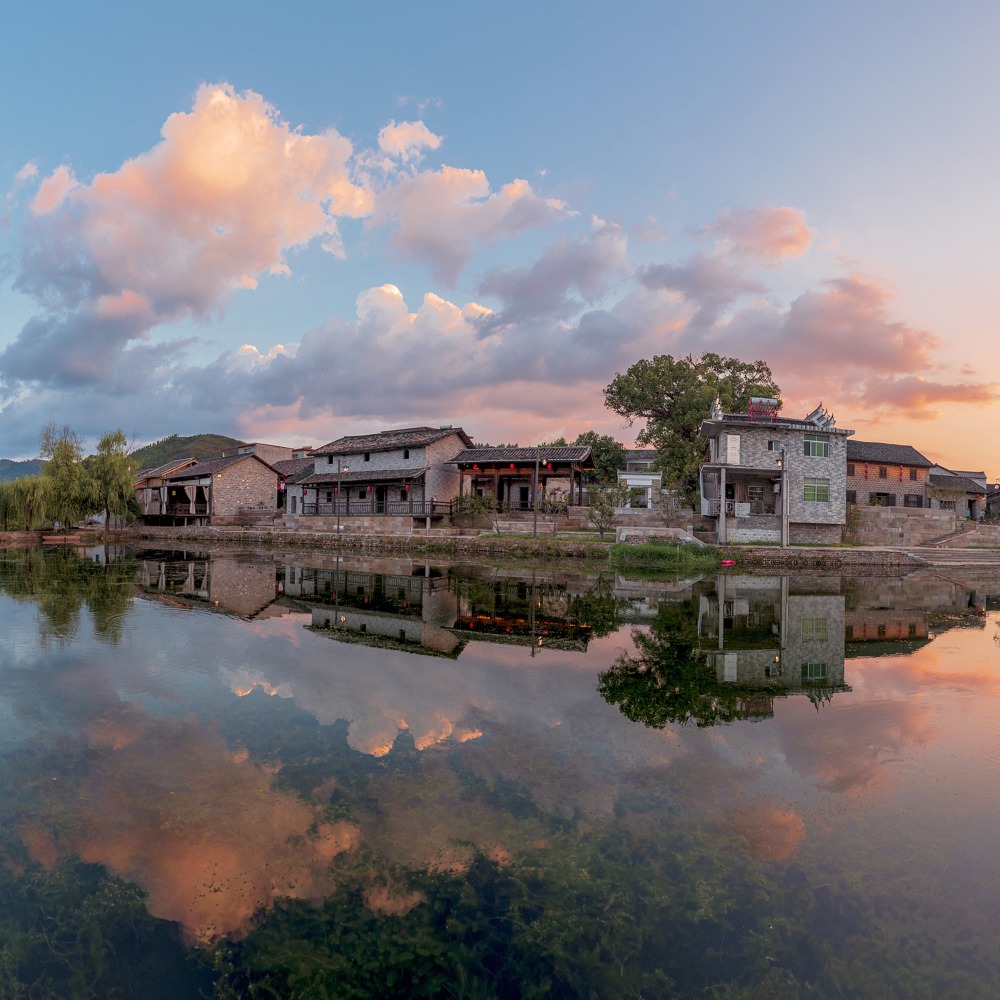
Fuzhou Liukengcun Gu Jianzhuqun.
Interestingly, the village’s cultural identity is further enriched by its distinct folk traditions and customs. The “Playing Happiness” dance and the “Xiaoyue Music” ensemble showcase the vibrant local heritage, while the annual Lantern Festival and its accompanying ceremonies draw visitors eager to experience the lively atmosphere steeped in history.
Today, Fuzhou Liukengcun Gu Jianzhuqun stands as a living museum, offering visitors a glimpse into the past through its architecture, cultural practices, and the stories of its inhabitants. This ancient village continues to thrive, preserving its traditions while adapting to modernity, making it a remarkable destination for those seeking to explore the depths of Chinese history and culture.
Main Highlights: What to See at Fuzhou Liukengcun Gu Jianzhuqun
Nestled in the serene embrace of Jiangxi Province, the ancient village of Liukengcun (流坑村) stands as a testament to China’s rich cultural heritage. This historical gem, situated along the banks of the Wu River in Fuzhou, boasts a remarkable collection of ancient architecture and vibrant local traditions that date back over a thousand years. Here are the key highlights that make Liukengcun a must-visit destination:
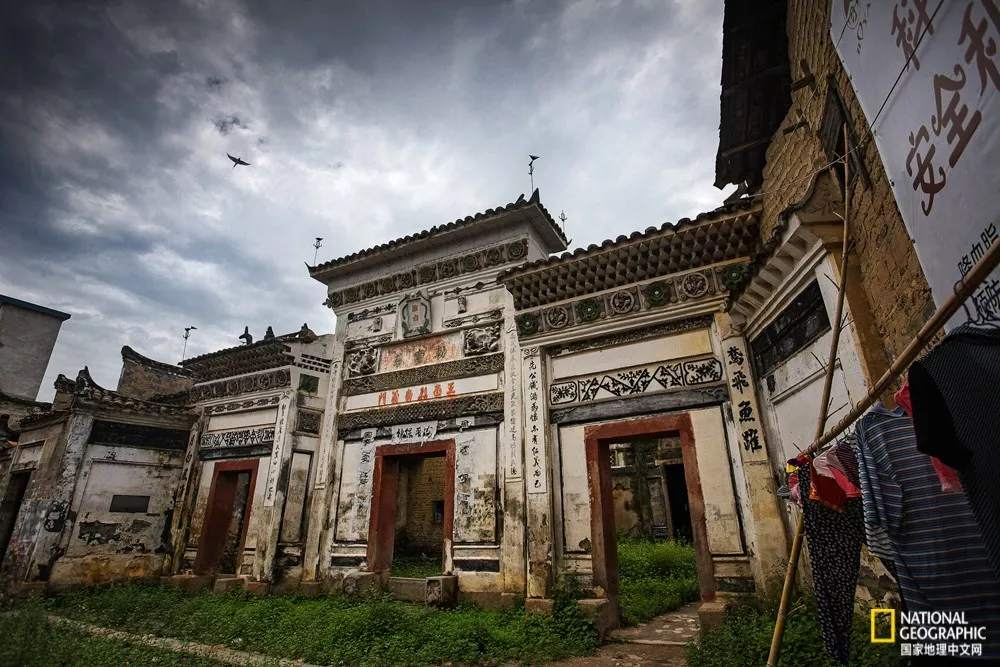
Fuzhou Liukengcun Gu Jianzhuqun.
Architectural Marvels
Liukengcun is renowned for its well-preserved ancient buildings, with more than 260 structures dating back to the Ming and Qing dynasties. The architectural style is a prime example of Gan-style architecture, characterized by elegant brickwork, intricately carved wood, and traditional grey-tiled roofs. Notable sites include the Zhuangyuan Lou (状元楼), a memorial hall for the village’s scholars, and the Hanyin Tower (翰林楼), which honors the literary achievements of its residents.
Cultural Significance
As a historical cultural village, Liukengcun has produced an impressive number of scholars throughout its history, including two top scholars (状元) and over 34 Jinshi graduates. The village’s commitment to education and scholarship is reflected in its rich literary traditions and educational institutions, which once thrived during the Song Dynasty, making it a beacon of knowledge in Southern China.
Scenic Beauty
Surrounded by lush mountains and flowing waters, Liukengcun offers breathtaking natural scenery. The village is bordered by the Wu River and features the picturesque Long Lake (龙湖), which enhances the tranquil atmosphere. Strolling through the village, visitors can enjoy the harmonious blend of nature and architecture, with ancient trees and well-maintained pathways guiding the way.
Vibrant Local Traditions
The village is not only a historical site but also a living cultural hub. Traditional festivals, such as the lively “Playing Joy” (玩喜) dance and the Lantern Festival celebrations, showcase the village’s vibrant customs. Visitors can engage with locals during these festivities, experiencing the unique folk arts, including mask dances and music performances that have been passed down for generations.
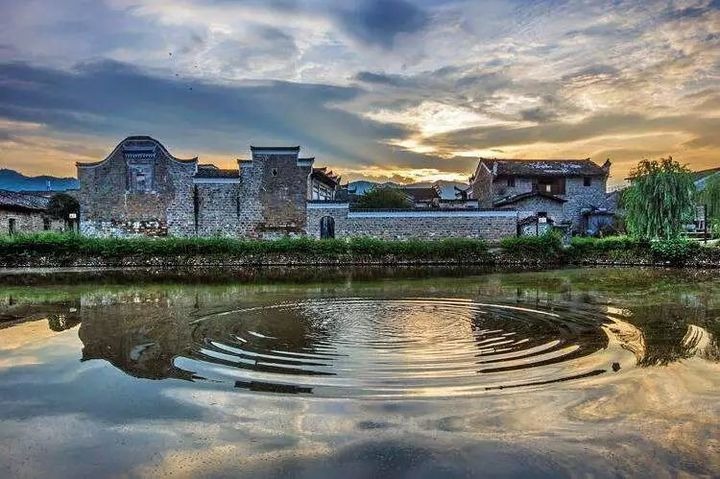
Fuzhou Liukengcun Gu Jianzhuqun.
Educational Heritage
Liukengcun is a treasure trove of educational heritage, with several historical schools and academies that once nurtured generations of scholars. The village’s focus on Confucian teachings and the imperial examination system has left an indelible mark on its culture, making it a significant site for those interested in China’s educational history.
Conservation Efforts
Recognized as a national key cultural relic protection unit, Liukengcun is committed to preserving its historical and cultural legacy. Visitors will appreciate the ongoing efforts to maintain the integrity of the ancient structures and promote sustainable tourism that respects the local environment and community.
Accessibility and Visitor Experience
Conveniently located within a short distance from major urban areas, Liukengcun is easily accessible for travelers. The village offers guided tours that provide insights into its history, architecture, and cultural practices, making it an enriching experience for visitors of all ages.
With its captivating blend of history, culture, and natural beauty, Liukengcun invites travelers to step back in time and immerse themselves in the enchanting stories that have shaped this remarkable village over the centuries.
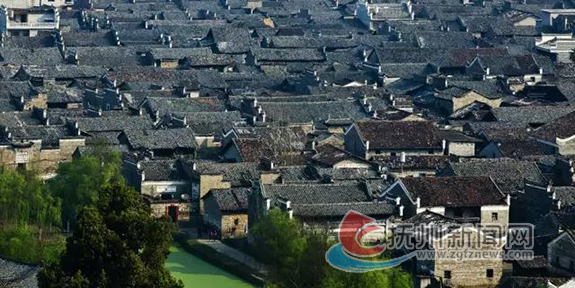
Fuzhou Liukengcun Gu Jianzhuqun.
Planning Your Visit: A Practical Guide
Practical Guide to Fuzhou Liukengcun Gu Jianzhuqun
Visiting the ancient village of Liukengcun (流坑村) in Jiangxi Province is like stepping back in time. This well-preserved site offers a unique glimpse into the architectural and cultural heritage of the Ming and Qing dynasties. Here’s everything you need to know for a smooth and enriching visit.
Getting There
Location:
Liukengcun is situated in the southeastern part of Niu Tian Town, Le’an County, Fuzhou City, Jiangxi Province. It lies approximately 37 kilometers from the county seat, easily accessible by car and public transport.
Transportation:
– By Car: Driving is a convenient option, as the roads are well-maintained. Use GPS to navigate to “Liukeng Village, Jiangxi.”
– Public Transport: Buses from Fuzhou or nearby towns frequently run to Niu Tian Town. From there, local taxis or rideshares can take you directly to the village.
Best Time to Visit
The ideal seasons to explore Liukengcun are spring (March to May) and autumn (September to November). During these months, the weather is mild and pleasant, perfect for walking tours. Avoid visiting during the peak summer months, as temperatures can soar.
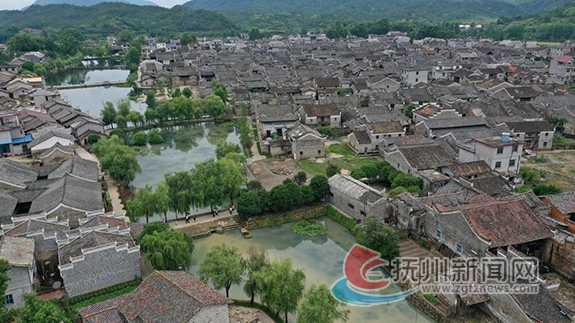
Fuzhou Liukengcun Gu Jianzhuqun.
Duration of Visit
Plan for at least 2 to 3 hours to explore the village and its significant sites thoroughly. If you wish to partake in local traditions or enjoy a leisurely stroll, consider allocating half a day.
What to See
Liukengcun is renowned for its stunning architecture and rich history. Key attractions include:
- Zhuangyuan Building (状元楼): A symbol of the village’s educational heritage, showcasing impressive Ming architecture.
- Hanlin Building (翰林楼): This structure commemorates the literary achievements of the Dong family and provides insights into traditional Confucian education.
- Various Ancestral Halls and Temples: Explore the numerous halls dedicated to ancestors and deities, displaying intricate carvings and traditional design.
- Dragon Lake (龙湖): A picturesque area that once served as a protective moat, ideal for enjoying nature and taking photos.

Fuzhou Liukengcun Gu Jianzhuqun.
Cultural Experiences
Engage with the local culture through various activities:
- Traditional Crafts: Participate in workshops where you can learn about local crafts, such as wood carving or bamboo weaving.
- Festivals: If your visit coincides with local festivals, such as the Lantern Festival or the “Playing Xi” dance, don’t miss the opportunity to partake in these vibrant celebrations.
Food and Dining
While in Liukengcun, be sure to sample local dishes. Traditional Jiangxi cuisine features rice and fresh vegetables, with specialties including:
- Rice Noodles: A local favorite, often served with spicy broth.
- Steamed Bamboo Shoots: Fresh and tender, typically enjoyed with a dipping sauce.
- Mijiu (Rice Wine): A sweet local brew that pairs well with meals.
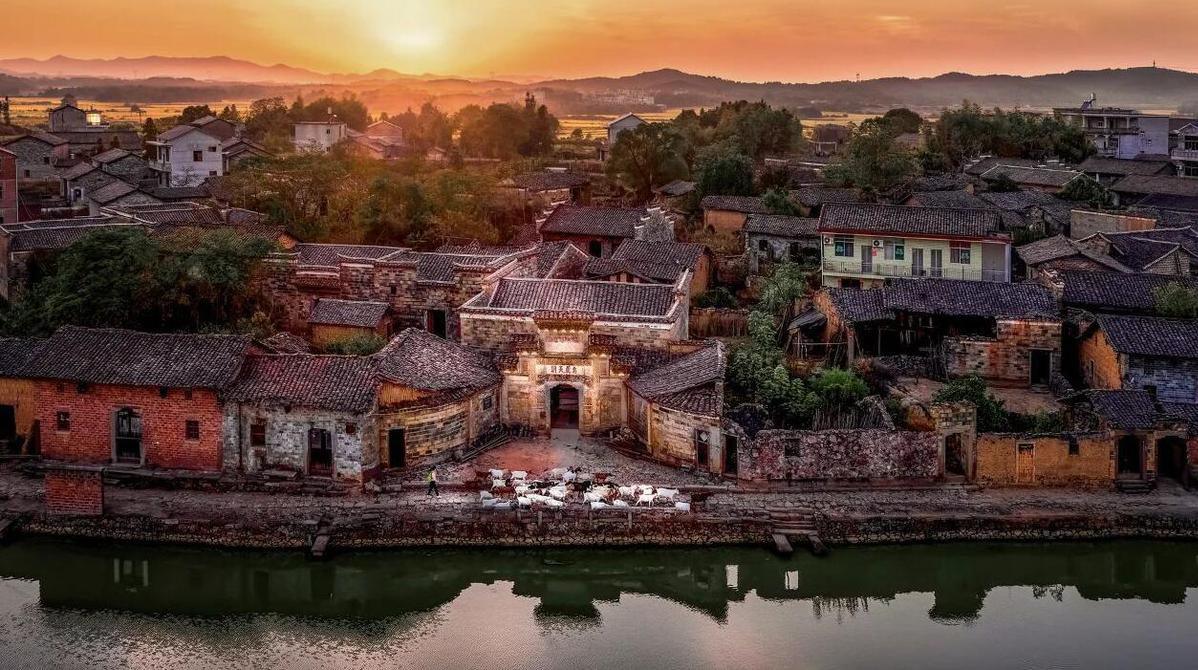
Fuzhou Liukengcun Gu Jianzhuqun.
Local eateries are available, but it’s wise to check for reviews or ask locals for recommendations.
Accommodation
If you wish to stay overnight, several guesthouses and homestays offer a comfortable and authentic experience. Consider these options:
- Local Guesthouses: These often provide meals and guided tours, allowing for an immersive cultural experience.
- Hotels in Le’an County: For more amenities, you can find several hotels in nearby towns, only a short drive from the village.
Practical Tips
- Dress Comfortably: Wear comfortable shoes and clothing suitable for walking, as the village streets are often cobbled and can be uneven.
- Cash is King: While some establishments may accept mobile payments, it’s advisable to carry cash, especially in local shops and eateries.
- Respect Local Customs: Remember to be respectful of local traditions and residents, especially when visiting temples or during cultural performances.
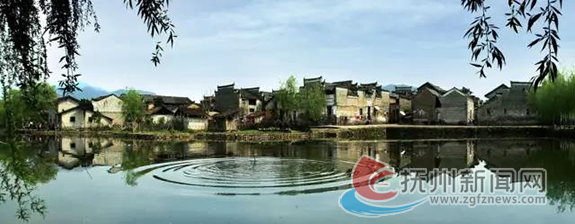
Fuzhou Liukengcun Gu Jianzhuqun.
Contact Information
For further assistance and up-to-date information, you can reach out to the local tourism office:
– Phone: +86 794-6672588
– Email: [email protected]
With its rich tapestry of history, architecture, and culture, a visit to Fuzhou’s Liukengcun promises a memorable journey into China’s past. Enjoy your exploration!
Tickets, Hours, and Booking
When planning a visit to the historic Fuzhou Liukengcun Gu Jianzhuqun (流坑村古建筑群), it’s essential to be aware of the ticketing details to ensure a smooth experience.
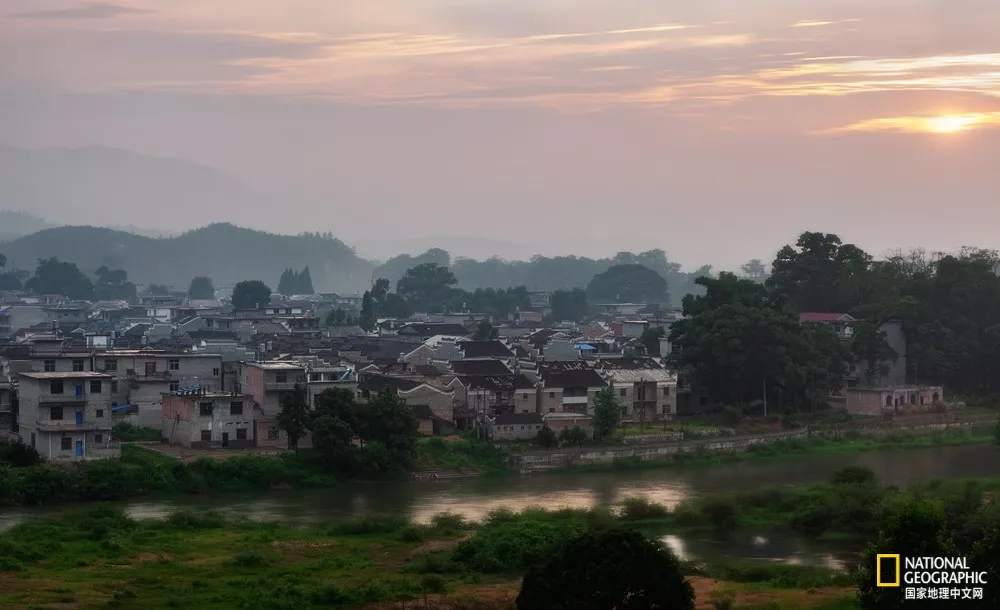
Fuzhou Liukengcun Gu Jianzhuqun.
Ticket Pricing
- General Admission: Approximately 98.38 HKD (about 13 USD)
- Discounted Tickets: Students and certain groups may be eligible for discounted rates, so it’s advisable to inquire upon arrival or check the official website for any available promotions.
Purchasing Tickets
Tickets can typically be purchased at the entrance to the village or online through various travel platforms. It’s recommended to buy tickets in advance during peak travel seasons to avoid long queues.
Opening Hours
- Daily Access: The village is open from 8:00 AM to 5:00 PM. Visitors are encouraged to arrive early to fully explore the extensive historical and cultural offerings.
Visitor Recommendations
- Duration of Visit: Plan to spend around 2-3 hours to fully appreciate the architecture, cultural sites, and the beautiful surroundings.
- Best Time to Visit: Spring and autumn are ideal for visiting, as the weather is mild and pleasant, making your exploration of the village more enjoyable.
Accessibility
The village is accessible via public transportation or by private vehicle. Ensure to check local transportation options or ride-sharing services to reach Fuzhou Liukengcun easily.
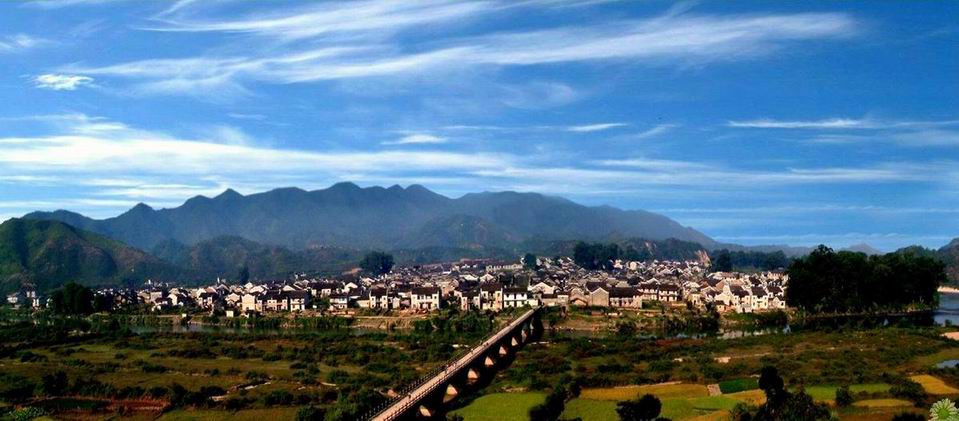
Fuzhou Liukengcun Gu Jianzhuqun.
Additional Tips
- What to Bring: Comfortable walking shoes are recommended as the village features cobblestone paths and ancient architecture.
- Stay Informed: Keep an eye on the official website or local tourism boards for any special events or changes in ticket prices.
By being well-prepared with this ticketing information, you can make the most of your visit to this enchanting historical site, rich in culture and architectural beauty.
How to Get There
Getting to Fuzhou Liukengcun Gu Jianzhuqun is relatively straightforward, with multiple transportation options available for visitors. This historic village, known for its remarkable ancient architecture and vibrant cultural heritage, offers access through various means depending on your starting location.
By Air
The nearest major airport is Fuzhou Changle International Airport (FOC), approximately 90 kilometers away from Liukengcun. From the airport, you can opt for a taxi or a ride-hailing service to reach the village. The journey by car typically takes around 1.5 to 2 hours.
By Train
Fuzhou is well-connected by rail, making it easy to reach from major cities in China. The Fuzhou Railway Station and the Fuzhou South Railway Station serve as primary hubs for high-speed trains. If you are coming from cities like Shanghai, Nanjing, or Guangzhou, you can take a high-speed train to Fuzhou. Once you arrive at the station, you can take a taxi or local bus to reach Liukengcun. The distance from the railway station to the village is approximately 37 kilometers, which can take around 40 minutes by car.
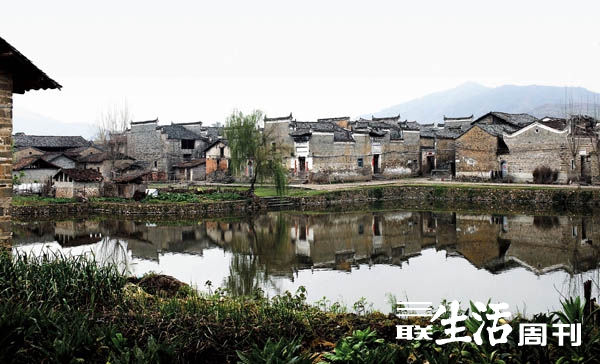
Fuzhou Liukengcun Gu Jianzhuqun.
By Bus
For those traveling from nearby regions, buses are a convenient option. Fuzhou has several long-distance bus stations, including the Fuzhou South Bus Station, where you can catch a bus to Le’an County, where Liukengcun is located. Buses from Fuzhou to Le’an run frequently throughout the day and take about 1.5 to 2 hours, depending on traffic conditions. Once in Le’an, you can take a local taxi or a ride-hailing service to the village.
By Car
If you prefer to drive, renting a car is an excellent way to explore the surrounding areas at your own pace. The village is accessible via well-maintained roads, and GPS navigation will guide you through the route. The drive from Fuzhou to Liukengcun typically takes about 1.5 to 2 hours.
Local Transportation
Once you arrive in the village, navigating is easy on foot, as Liukengcun is compact and pedestrian-friendly. The village’s layout encourages exploration, allowing you to enjoy the ancient architecture and local culture without the need for additional transportation.
Whether you are arriving by air, train, or bus, reaching Liukengcun is a seamless experience, providing a chance to immerse yourself in the rich history and stunning architecture that this ancient village has to offer.
Local Cuisine and Accommodation
When visiting the historic village of Liukengcun (流坑村), a treasure trove of ancient architecture and rich culture, you’ll find options for lodging and dining that enhance your experience of this time-honored destination.
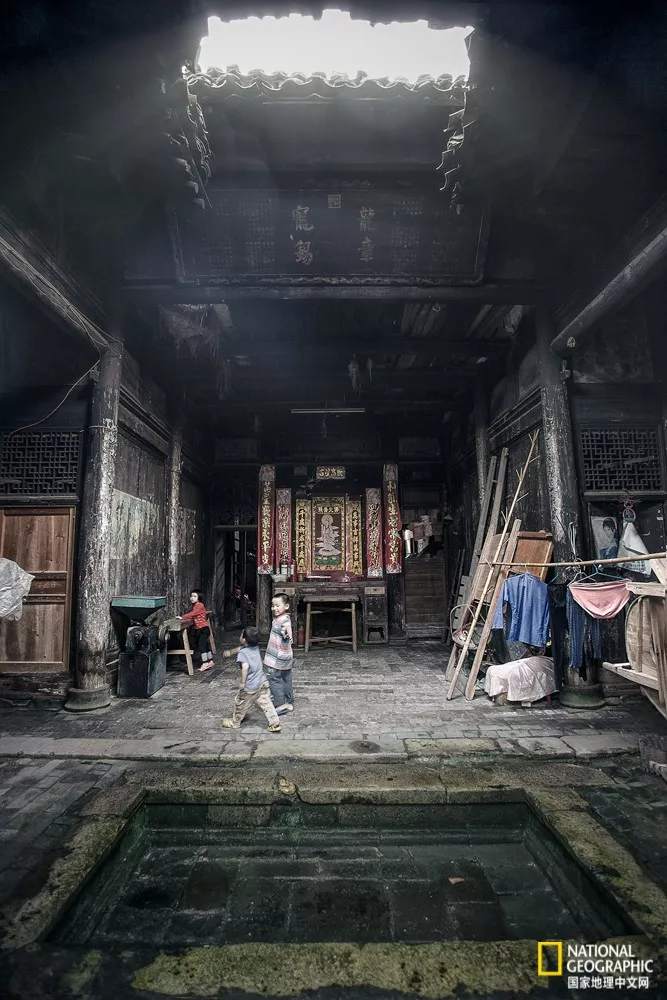
Fuzhou Liukengcun Gu Jianzhuqun.
Accommodation
For a truly immersive experience, consider staying at Nanyuan B&B (南源民宿). Nestled at the foot of the scenic Dajue Mountain, this accommodation combines modern comforts with traditional design inspired by the local bamboo culture. With spacious rooms that reflect the essence of the Jiangxi region, guests can enjoy amenities such as wellness treatments, a serene ambiance, and personalized service. It’s an excellent base for exploring Liukengcun and the surrounding areas.
Another noteworthy choice is Liukengcun Guesthouse (流坑村客栈), which offers a more rustic, homely atmosphere. Here, you can experience the warmth of local hospitality, with rooms adorned in traditional decor. The guesthouse is conveniently located near major attractions, making it easy for guests to delve into the village’s historical sites.
Dining
Food lovers will delight in the local culinary offerings at Xianghe Restaurant (香和餐厅). This establishment serves a variety of traditional Jiangxi dishes, including the famed Nanchang rice noodles (南昌米粉) and Gan cuisine (赣菜) specialties. The restaurant prides itself on using fresh, locally sourced ingredients, ensuring that each dish reflects the authentic flavors of the region.
For a more casual dining experience, head to Liukeng Village Food Stall (流坑村小吃摊), where you can savor local street food delights. Here, try the steamed buns (包子) filled with savory meats and vegetables, or sample the unique fermented fish (霉鱼), a local delicacy. This is an excellent way to experience the vibrant food culture of Liukengcun while mingling with locals.
Additionally, don’t miss the opportunity to taste homemade rice wine (米酒), often served at family-run eateries. Its sweet and slightly tangy flavor is a perfect accompaniment to many dishes and gives you a taste of the region’s rich agricultural practices.
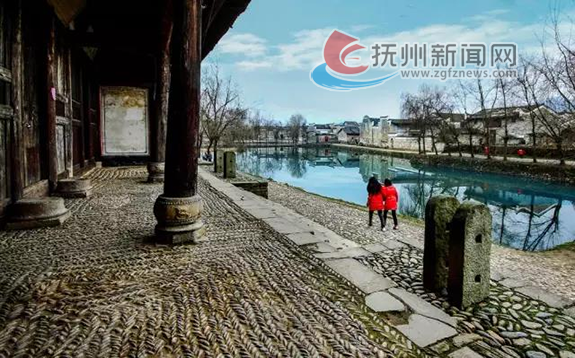
Fuzhou Liukengcun Gu Jianzhuqun.
Exploring the food and accommodation options in Liukengcun not only nourishes the body but also enriches the soul, allowing you to fully immerse yourself in the cultural tapestry of this ancient village.
Frequently Asked Questions
FAQs about Fuzhou Liukengcun Gu Jianzhuqun (流坑村古建筑群)
-
What is the historical significance of Liukengcun?
Liukengcun, also known as Liukeng Ancient Village, boasts a rich history dating back to the Five Dynasties period (approximately 937-943 AD). It is renowned for its well-preserved architectural heritage and its historical role as a hub for education and civil service, producing numerous scholars and officials over the centuries. -
How do I get to Liukengcun?
Liukengcun is located in the southeastern part of Le’an County, Jiangxi Province, approximately 37 kilometers from the county seat. Visitors can reach the village by car or taxi. Public transportation options may also be available, but checking local schedules is advisable. -
What are the main attractions within Liukengcun?
Key attractions include the Scholar’s Tower (状元楼), the Hall of Confucian Scholars (文馆), and various ancestral halls and traditional residences. Visitors can also explore the historic streets lined with ancient buildings that reflect the unique architectural style of the Gan school. -
Is there an entrance fee to visit Liukengcun?
Yes, there is an entrance fee to access the scenic area of Liukengcun. Prices may vary, so it is recommended to check the official website or local tourism information for current rates. -
What is the best time to visit Liukengcun?
The ideal times to visit are during the spring (March to May) and autumn (September to November) when the weather is mild and pleasant. These seasons also provide beautiful scenery as flowers bloom or leaves change color. -
Are there any local customs or events I should be aware of?
Visitors should be aware of local customs, especially during festivals such as the Lantern Festival, where traditional activities like lantern displays and folk performances take place. Engaging with these events can enhance your cultural experience. -
What facilities are available in Liukengcun for tourists?
Liukengcun offers basic tourist facilities, including guided tours, information centers, and public restrooms. However, options for dining and accommodation may be limited, so plan accordingly or consider staying in nearby towns. -
Can I participate in any cultural activities while visiting?
Yes, tourists often have opportunities to engage in local cultural activities, such as traditional crafts, folk performances, and cooking classes that showcase the region’s culinary heritage. Check with local guides for available experiences during your visit.
Final Thoughts on Your Trip
In exploring Fuzhou’s Liukengcun Gu Jianzhuqun, visitors are transported back in time, enveloped by the rich tapestry of history that this ancient village embodies. With its stunning architecture, vibrant cultural heritage, and the serene beauty of its natural surroundings, Liukengcun stands as a testament to the enduring spirit of its inhabitants.
The village not only showcases the architectural splendor of the Ming and Qing dynasties but also invites travelers to immerse themselves in the traditions and stories of the Dong clan, whose lineage stretches back over a millennium. Each structure, from the majestic Zhuangyuan Tower to the intricate ancestral halls, tells a story of scholarly achievement and familial pride that continues to resonate today.
As you wander through its winding alleys and scenic vistas, take a moment to reflect on the lives that have shaped this remarkable community. Whether you are drawn by the allure of ancient architecture, the richness of local customs, or the tranquil beauty of the countryside, Liukengcun offers a unique experience that is sure to inspire and leave a lasting impression.
Visiting this historic gem is not merely an exploration of the past; it is an opportunity to connect with the cultural roots of Jiangxi and appreciate the timeless values of education, family, and resilience that define this extraordinary village. Let the whispers of history guide your journey as you uncover the many layers of Liukengcun—where every corner holds a piece of China’s illustrious cultural heritage.
